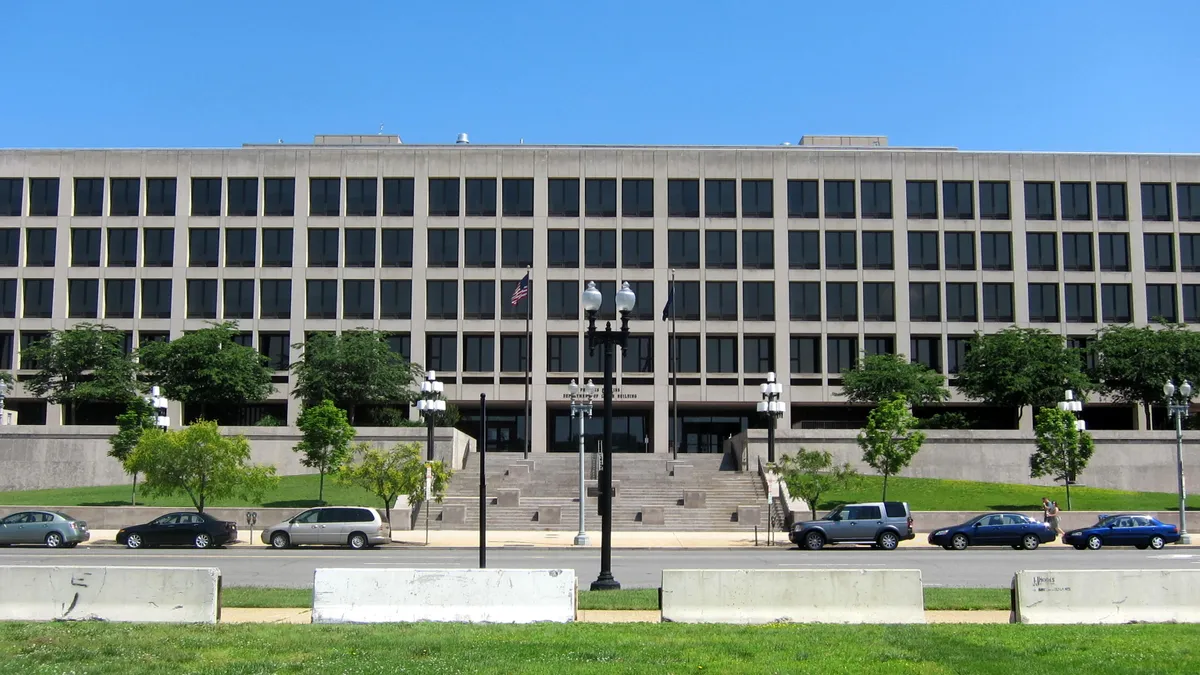Dive Brief:
- The Trump administration this week announced more details about a proposal to set up a new apprenticeship structure that would expand such offerings across more industries and job types.
- The proposed rulemaking would establish industry-recognized apprenticeship programs (IRAPs) that would run alongside the current registered apprenticeship system. To avoid "undercutting" the latter, the U.S. Department of Labor said the new programs would focus on industries that don't have strong apprenticeship opportunities.
- The department also hopes to craft a process to recognize certain groups, including educational institutions, as standards recognition entities (SREs). They would set standards for training, structure and curricula for IRAPs.
Dive Insight:
Though not a new concept, apprenticeships are gaining momentum in higher ed due in part to interest from the Trump administration. Colleges see them as an opportunity to give students hands-on learning experiences. And employers are also interested in them because they help train and vet talent prior to hiring.
The Labor Department previously said IRAPs would include a paid work component as well as an educational or instructional component. Such programs would also provide mentorship, industry-recognized credentialing, safety and supervision, and they would be governed by equal employment opportunity regulations.
Despite apparent hurdles earlier this year, interest in revamping the nation's apprenticeships appears to be moving forward again.
The latest proposed rule could significantly expand the number of apprenticeships made available.
Its language around SREs is notable. The department said its approach of not limiting the types of entities that could pursue SRE classification was tied to its goal of encouraging apprenticeship growth in multiple industries and occupations. Companies would be able to develop apprenticeship proposals, but could not be SREs on their own. SREs would also not be allowed to recognize their own apprenticeship programs.
The agency said it would evaluate SREs on criteria such as whether an applicant can set standards for apprenticeships using a consensus-based process.
The proposal would also prohibit SREs from offering consultative or educational services to programs that would impact their impartiality. SREs also would not be able to recognize an apprenticeship program for longer than five years at a time. Automatic renewal of programs would also be prohibited. SREs would be evaluated by the administrator of the Labor Department's Office of Apprenticeships.
One concern regarding apprenticeships is the cost and who is responsible for it. The Labor Department said in a press release that it would create $183.8 million in grant awards to support apprenticeships that specifically involve partnerships between companies and educational institutions, as well as an additional $100 million to expand apprenticeships and fund skills training.
Nearly two-dozen academic institutions across 18 states have been awarded the former category of grants, the department said, with several focused on health care, information technology and advanced manufacturing.

















